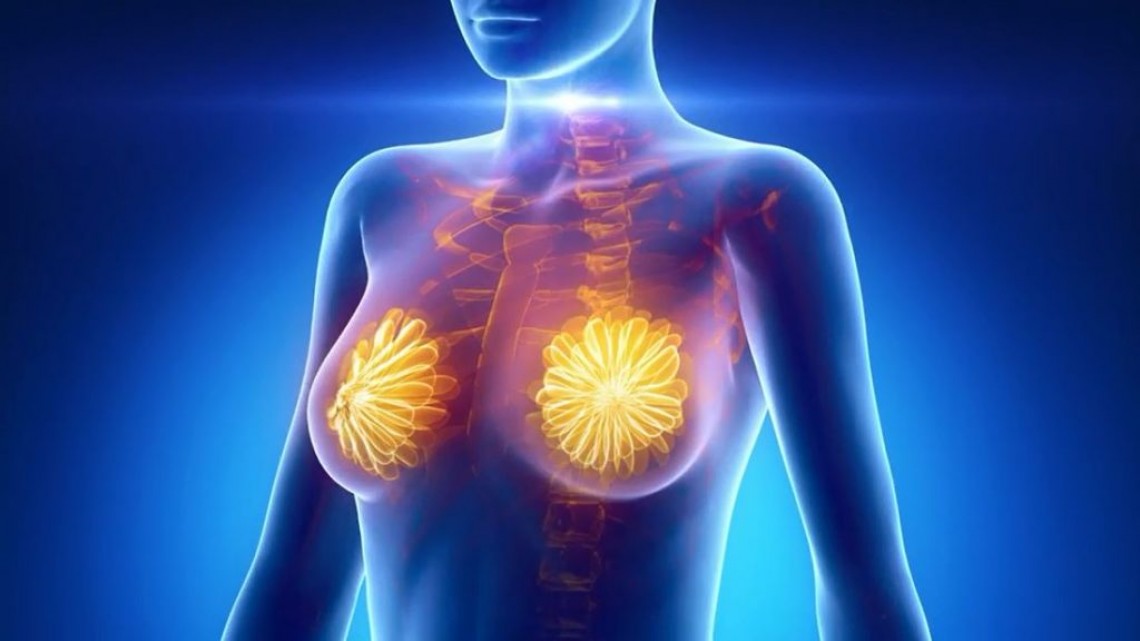ΤΟ ΑΓΛΥΚΟ ΤΟΥ ΛΙΓΚΣΤΡΟΣΙΔΗ ΑΝΑΣΤΕΛΛΕΙ ΤΗΝ ΑΝΑΠΤΥΞΗ ΚΑΡΚΙΝΟΥ ΤΟΥ ΜΑΣΤΟΥ

Επιδράσεις φαινολικών ενώσεων απομονωμένες απευθείας από εμπορικό εξαιρετικά παρθένο ελαιόλαδο στο ογκογονίδιο tabAnti-HER2 (erbB-2).
Ο Memendez και η ομαδα του στη έρευνα τους μελέτησαν την ικανότητα του άγλυκου του λιγκστροσίδη να ρυθμίζει το μετασχηματισμένο φαινότυπο του υποδοχέα κινάσης τυροσίνης HER2 που προάγεται in vitro σε ανθρώπινα επιθηλιακά κύτταρα του μαστού. Με τη χρήση της φυσιολογικής κυτταρικής σειράς MCF10A του επιθηλίου του μαστού, επιπλέον, διευκρινίστηκε η σχέση ανάμεσα στη χημική δομή του άγλυκου του λιγκστροσίδη και των ανασταλτικών του επιδράσεων έναντι της δράσης κινάσης τυροσίνης της ογκογόνου πρωτεΐνης HER2. Όταν συγκρίθηκαν με φυσιολογικά κύτταρα, τα κύτταρα της σειράς MCF10A/HER2, με την χορήγηση άγλυκου λιγκστροσίδη, μεγάλωναν με μικρότερη πυκνότητα, αυξανόταν σημαντικά σε όγκο και παρουσίαζαν ένα ανασχηματισμό των διακυτταρικών επικοινιών τους, με την εμφάνιση πολλαπλών εκβολών.
Το άγλυκο του λιγκστροσίδη ήταν ένας από τους πιο δυνατούς αναστολείς της έκφρασης της HER2 πρωτεΐνης στα MCF10A/HER2 κύτταρα με μείωση κατά 68% και IC50 10μΜ. Η υπερέκφραση της HER2 προωθούσε μια επιπλέον επιδεινωμένη ευαισθησία στις αποπτωτικές δράσεις του άγλυκου του λιγκστροσίδη. Αυτά τα ευρήματα υποστηρίζουν μοριακά επιδημιολογικές μελέτες που δείχνουν πως οι δράσεις του άγλυκου του λιγκστροσίδη έναντι του καρκίνου του μαστού επηρεάζουν τα περιαστατικά που οφείλονται σε υπερέκφραση του υποδοχέα HER2 με δράση κινάσης τυροσίνης, αλλά και επιπλέον προτείνουν πως η στερεοχημεία του άγλυκου του λιγκστροσίδη μπορεί να παρέχει μια τέλεια και αξιόπιστη βάση για το σχεδιασμό αντικαρκινικών φαρμάκων που στοχεύουν στην HER2.
Το άγλυκο του λιγκστροσίδη αναστέλλει την ανάπτυξη καρκίνου του μαστού καθώς προκαλεί μείωση του αριθμού των υποδοχέων κινάσης τυροσίνης HER2, που υπάρχει σε μεγάλα ποσοστά στα καρκινικά κύτταρα του μαστού και οδηγεί στον ανεξέλεγκτο πολλαπλασιασμό τους.

Fig. Effects of the EVOO polyphenols on the transforming ability of HER2.
